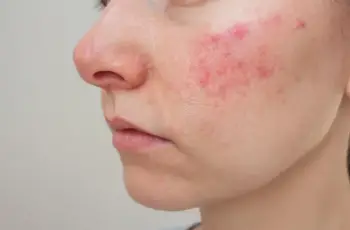
How many times a week can you use retinol?
Given the many benefits and accolades that come with retinol, you’ll definitely want to reap the rewards of this impressive ingredient. However, along with this accolade and myriad benefits come a few caveats that you should keep in mind as you introduce this powerhouse into your daily routine.
If you’re already using retinol, you’ve probably experienced how much time and effort it takes to build up your skin’s tolerance to this form of vitamin A. If you haven’t tried using tretinoin yet, you’ll find today’s blog post extremely helpful. So if you want to know exactly how many times a week you can use retinol, as well as other questions we’ve received recently, stay tuned.
Before we dive in: If you need a refresher on the benefits and expected results of retinol, check out our dedicated blog post.
Can retinol be used daily?
The short answer is yes, the longer, more detailed answer is that it depends a lot on the effectiveness of the formula. With retinol’s benefits making it a powerful ingredient that helps fight free radical damage like sun exposure and pollution, and boosts collagen production, I wouldn’t blame you if you wanted to use it daily. However, before you do this, make sure you are using a low percentage product. Start with 0.05% as this will help build up your skin’s tolerance without being too irritating.
For higher percentages, my advice would be to avoid using it every night and instead use it up to three times a week. Don’t forget to consult your doctor or dermatologist if you have any questions to avoid any unwanted irritation or reactions.
How often can retinol be used?
You can initially use a higher percentage retinol once or twice a week. However, you should only do this once you have properly incorporated the retinol product into your daily routine so that your skin has developed a tolerance. Once you have done this and your skin is happy with the increase, you can use retinol three times a week or every other day.
Common side effects, also known as the “retinol ugly,” are something everyone who starts using retinol will experience. There will be some dryness and flaking of the skin on your face, and it will often feel very uncomfortable and tight. Over time, this will all pass and you will really see the true benefits of this powerhouse. In the meantime, if you want to stop the itchiness, you can use a serum containing hyaluronic acid, which can transform the skin, boost the hydration of your complexion, and lock in moisture on the outer surface.
How long do you need to use retinol to see results?
For over-the-counter formulas, you may notice a difference after 5-6 months of regular use. Your skin will appear smoother, more even-toned, and overall more youthful.
If you use a medical or prescription product, the waiting period is similar. However, some users have found that some issues, such as rashes and acne, often improve after as little as 12 weeks. Other issues, such as sun damage, dark spots, and signs of aging, may take longer to improve.
How much retinol is too much?
The saying “the more you apply, the faster you’ll see results” simply doesn’t hold true when using such a powerful skincare ingredient. When using retinol, you should avoid applying too much to your skin, as this can cause severe dryness, discomfort, and may lead to pain and peeling. Just a pea-sized amount is enough to apply all over your face without any side effects. As I mentioned before, you can also combat dryness with skincare products that are rich in moisturizing ingredients like hyaluronic acid to keep your skin barrier balanced and functioning properly.
Can I use retinol once a week?
Yes, you can, but it really doesn’t make sense to use it only once a week. It’s true that retinol has a drying effect initially and can cause slight irritation. But this won’t last long, and once your skin gets used to the formula, you can use it every other night.
If you still only want to use retinol once a week, by all means go ahead and do so if it suits you and your skin type. You can also combine this powerful ingredient with other ingredients like vitamin C, hyaluronic acid, and lactic acid. Just check if your skin is happy with this routine. The last and extremely important step is to always apply a product with SPF 30 or higher every day to protect your skin barrier from the sun and free radicals.
What happens if you use too much retinol?
If you use a medicated or prescription formula, you’ll find that it can cause severe itching, irritation, and peeling on your face if you’re not too careful. It’s very important to follow the instructions on the packaging, as every formula and product is different. If you have any questions, consult a doctor or trained professional to make sure you are using the correct dosage. It is important not to rush into using retinol. If you are not sure what I mean, you can read our blog post which goes into more detail about which retinol strength you need and can benefit the most from.
Now you have a better idea of how often to use retinol per week. Don’t forget: If you love skin, you can follow us on Instagram for exclusive discounts, new product launches and daily skincare tips.


